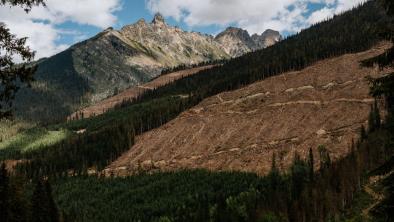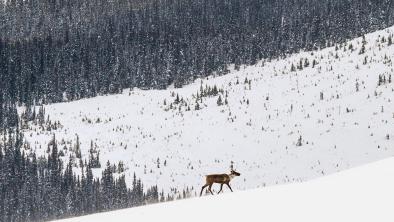Court weighs Peter Kent's right to silence on endangered sage grouse
Globe and Mail
The federal government has pulled a veil of secrecy over its plans – or even whether it has any plans – to save the greater sage grouse, a critically endangered species known for its fantastical courtship rituals.
In the Federal Court of Appeal, Tuesday, a panel of three judges listened while lawyers argued over whether Environment Minister Peter Kent has to reveal if he has made a recommendation to cabinet concerning the fate of the sage grouse.
The iconic species, which is on the verge of extinction in Canada, puts on one of the most amazing courtship performances in the animal kingdom, with the richly plumed males dancing at breeding sites, known as leks, while the females watch. But the breeding that takes place after those spring dances has dropped dramatically over the past two decades, and the population has fallen from an estimated 6,000 birds to fewer than 100. Industrial development is blamed for fracturing the landscape in southern Alberta and Saskatchewan, which is the only place in Canada where the birds are found.
Alarmed by the decline, Ecojustice, a law firm representing a coalition of several environmental groups, went to Federal Court five years ago to try to get the government to enforce the Species at Risk Act, which requires the Minister of Environment to recommend emergency recovery plans for endangered species. While the matter has been before the court, the population has declined from 600 to the current estimate of fewer than 100 birds.
“The sage grouse is dropping like a stone while this court process drags on,” Gwen Barlee, a director of the Wilderness Committee, said outside court in Vancouver.
“If the sage grouse doesn’t deserve protection, what species does?” she asked, saying that the species could be extinct in Canada in a few years.
Ecojustice first went to court seeking a judicial review of the minister’s actions, but the case has been delayed by numerous legal arguments since then. In the latest action, the Attorney-General of Canada and Mr. Kent argue the minister does not have to disclose whether or not he has recommended a plan because his deliberations are covered by cabinet confidentiality.
“We want the court to intervene and require that the minister tell us what is going on,” Ecojustice lawyer Melissa Gorrie said outside court.
In a factum, Ecojustice argued “it is a ludicrous and dangerous proposition, for the government to argue that because of cabinet confidentiality, the court doesn’t have the right to know whether the minister has met his statutory obligations.
Ecojustice lawyer Sean Nixon told court the government’s stand is “a strange response that seems to undercut the court’s authority.”
But Angela Fritz, a lawyer acting for the government, said “there is no indication the minister has failed to exercise his duty,” and she rejected any suggestion Mr. Kent is undermining the court by claiming cabinet confidence.
She said the Minister “is moving that work [on the sage grouse] along,” and “it is premature to require the minister to disclose any more information [than that].”
The Federal Court of Appeal judges reserved a decision, but not before expressing concerns about the arguments being made by both sides.
“This thing is a procedural nightmare,” Judge Denis Pelletier complained at one point.
He observed that the government’s position is “There is no decision or there is a decision but we can’t tell you what it is.”
But he also challenged the Ecojustice argument, saying: “Where do we get the authority to tell a minister what to say and when to say it?”


